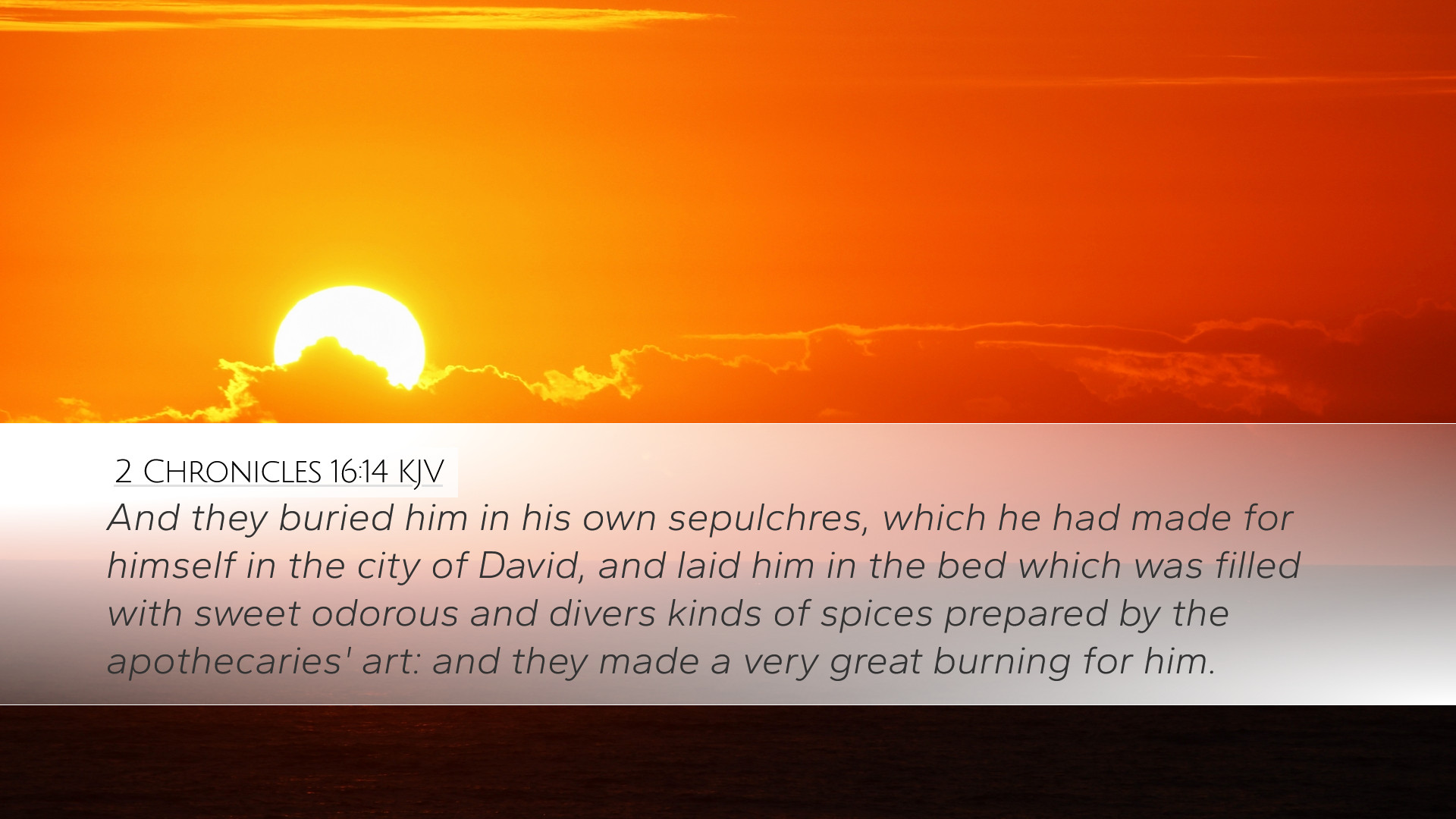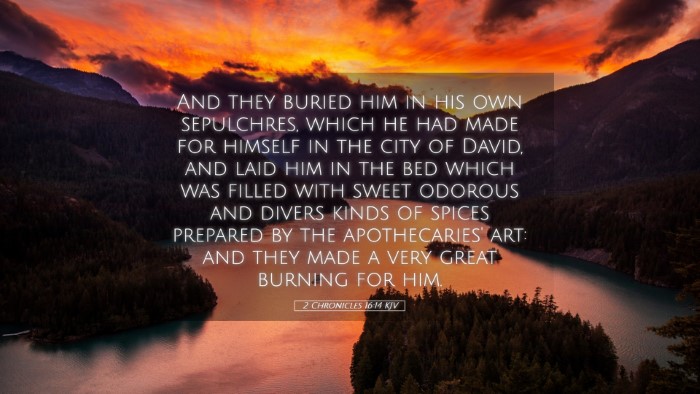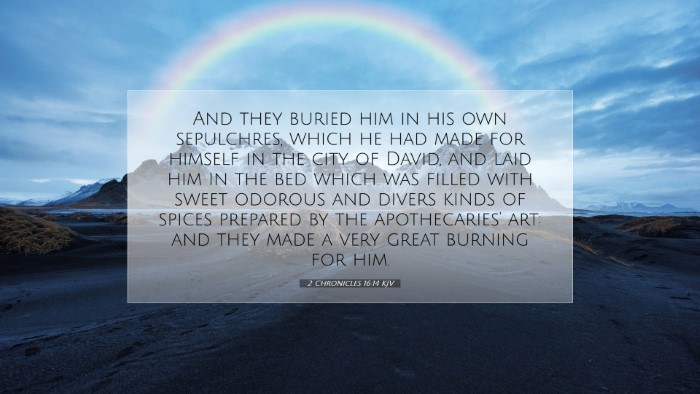Commentary on 2 Chronicles 16:14
Verse: "And they buried him in his own sepulchres, which he had made for himself in the city of David, and laid him in the bed which was filled with sweet odours and divers kinds of spices prepared by the apothecaries' art: and they made a very great burning for him."
Introduction
The passage found in 2 Chronicles 16:14 reflects the burial of King Asa, a significant figure in the history of Judah. Asa's reign showcased both commendable reforms and notable failings. The description of his burial provides profound insights into his legacy and the customs surrounding death and remembrance in ancient Judah.
Historical Context
The narrative in 2 Chronicles is set during a tumultuous period in Israel's history, characterized by political strife and spiritual decline. Asa, who ruled for 41 years, was known for his early faithfulness to God and attempts to cleanse Judah of idolatry. However, the latter part of his reign is marked by political maneuvering and a reliance on human strength rather than divine assistance.
Analysis of the Text
- Burial Practices: The verse talks about Asa's burial in his own sepulchres, highlighting the royal burial practices that were customary, illustrating not only his royal stature but also the respect afforded to him in death. Matthew Henry notes that such sepulchres were often elaborately constructed, indicative of the honor with which a king was buried.
- Significance of Aromatic Spices: The mention of "sweet odours and divers kinds of spices" emphasizes the importance of honoring the dead with dignity and reverence. Albert Barnes elaborates on this practice, suggesting that it was a demonstration of love and respect, commonly seen in ancient funerary customs. The spices also symbolize the hope of a better life beyond death.
- The Great Burning: The specific reference to "a very great burning" signifies the elaborate funeral rites held for Asa, which were not just for his personal honor but also reflected the cultural expectations of a king's burial. Adam Clarke comments that such a grand display speaks volumes about the people's acknowledgment of Asa’s past leadership and their desire to commemorate it properly.
Theological Reflections
This verse invites deeper theological reflection on several key themes:
- The Nature of Honor: How do we honor those who have led us spiritually? King Asa's burial rites serve as a prompt for contemporary leaders to consider their legacies and the impact of their leadership.
- Divine vs. Human Dependence: Asa's life culminates in a poignant reminder about the importance of reliance on God rather than on human alliances or military might. This motif reoccurs throughout scripture, urging believers to trust in God's unwavering provision and strength.
- Life After Death: The rich descriptions of burial practices lead us to ponder the notions of afterlife prevalent in the biblical narrative. The careful preparation of Asa's body reflects a hope for an eternity beyond mere earthly existence.
Lessons for Pastors and Leaders
For those in spiritual leadership, Asa's life and burial encapsulate valuable lessons:
- Early Faithfulness: Asa began his reign with strong faith in God. Leaders should aspire to maintain that dedication despite challenges and temptations that arise over time.
- Legacy and Influence: How leaders are remembered is crucial. The grandeur of Asa's burial indicates the lasting impact of one's life and leadership on future generations.
- Dependence on God: As Asa's later years reflect a turn away from complete reliance on God, this serves as a cautionary tale for leaders today. Continuous dependence on divine wisdom is essential for faithful leadership.
Conclusion
2 Chronicles 16:14 serves as a profound reminder of both the dignity afforded to leadership in death and the spiritual themes that underpin our lives. The practices surrounding Asa's burial encourage us to think about how we honor those in our community, the legacies we leave behind, and the importance of reliance on God throughout our journey. As we reflect on this scripture, may we be inspired to live lives of faith that influence our communities for generations to come.


